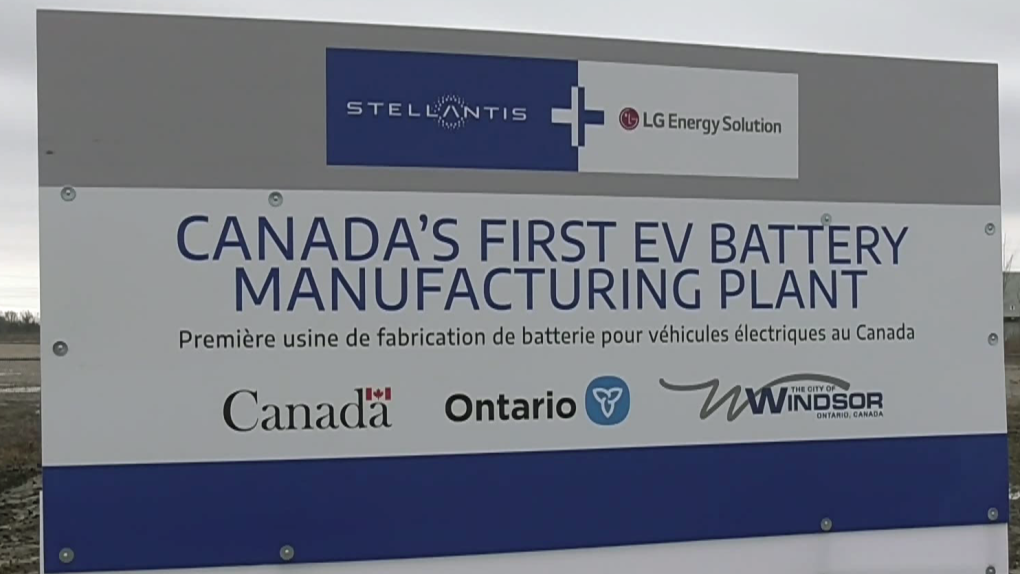
Windsor’s mayor is sounding the alarm over U.S. legislation which looks to localize electric vehicle battery supply chains across the border.
The Inflation Reduction Act, which was signed into law by President Joe Biden last August, provides billions of dollars in incentives to companies which extract or process EV battery components in the U.S.
Mayor Drew Dilkens said the Act puts Canadians cities, such as Windsor, at a disadvantage since the federal government is unable to offer similar incentives which may discourage new manufacturers from setting up shop here.
“Because of their size, 10 times bigger in terms of population than Canada, it is a massive effort for our government to be able to be competitive in that space,” said Dilkens.
“So we have a lot on the line here.”
Companies such as Stellantis and General Motors which already have operations running in Canada have reaffirmed their commitment to continue doing so, despite the incentives offered by the U.S. legislation, according to the president of the Automotive Parts Manufacturers’ Association.
However, Flavio Volpe adds attracting new EV battery manufacturers to Canada may be difficult.
Instead, Volpe suggests the Canadian government focus on strategic investments, rather than matching the U.S. dollar for dollar.
“There’s a finite number of battery plants those car makers are going to invest in,” said Volpe.
“Pick the targets, specific ones. Go in hard. If you lose them, you lose them. But don’t cast the net wide because it’s not going to work.”
Last year, Volpe was part of an all-hands-on-deck team which called for the U.S. government to amend conditions surrounding an EV tax credit that consumers could access — but only if the vehicle was manufactured in the U.S.
The credit was later amended to apply to vehicles in Canada as well.
According to Volpe, the incentives being offered by the Biden administration for manufacturers risks hurting Canada’s ability to attract new companies.
“We were fortunate enough to get Stellantis [and LG] in Windsor and Umicore in Kingston, but we may not get anymore,” he said.
“What’s important for the long term of those car plants is that they buy their batteries in the same region where they make their cars.”
For Dilkens, he wants to see the federal government “step up” and appeal to the U.S. for changes to the Inflation Reduction Act.
“Looking forward to other investments in the battery space, it really is going to put a drain on the federal coffer if they have to provide the level of incentive being provided in the United States. If we want to be a player, we have to be at the table,” said Dilkens.
«Our supply chains are so tightly integrated that the message here is we really need to continue to work together, as opposed to trying to divide and conquer.”